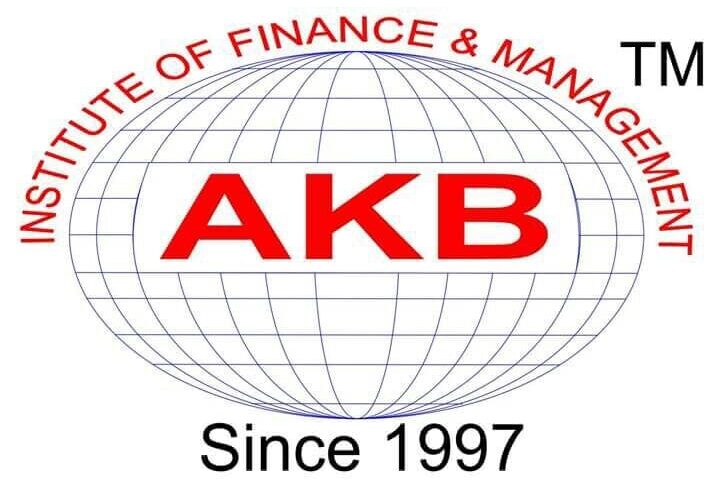
Staying on top of your financial records and processes is paramount in the ever-evolving business management landscape. Financial accounting, often called the language of business, plays a pivotal role in providing insights, making informed decisions, and ensuring regulatory compliance. If you still need to rely on manual or outdated accounting practices, it’s time to consider switching to modern financial accounting methods. In this blog, we’ll delve into the top ten reasons why transitioning to Financial Accounting is beneficial and essential for your business’s success.
1. Enhanced Decision-Making
In today’s fast-paced business environment, informed decision-making is crucial. Financial accounting offers a wealth of data that can guide your strategic choices. You gain insights into your business’s financial health by maintaining accurate records of income, expenses, and financial ratios. These insights empower you to make well-informed decisions, such as effectively identifying profitable areas, cutting unnecessary costs, and allocating resources. Without a clear understanding of your financial position, you’re essentially navigating in the dark, which can lead to missed opportunities and misjudgments.
2. Compliance And Transparency
Businesses operate in a heavily regulated environment. Financial accounting ensures that you comply with various legal and tax requirements. When your financial records are accurate and up-to-date, you’re better equipped to demonstrate transparency to regulatory bodies, investors, and other stakeholders. This builds trust and credibility, which are essential for long-term business growth. Non-compliance can lead to fines, legal complications, and damage to your reputation.
3. Accurate Financial Reporting
Switching to financial accounting brings forth the ability to generate precise financial statements, such as balance sheets, income statements, and cash flow statements. These statements provide a snapshot of your company’s financial performance and position. They’re essential for internal assessment and for presenting your business’s financial health to investors, lenders, and potential partners. Accurate reporting instils confidence in those who interact with your business and aids in securing funding for expansion.
4. Streamlined Processes And Efficiency
Manual bookkeeping and outdated accounting methods can be time-consuming and error-prone. Switching to modern financial accounting software automates many processes, reducing the risk of human error and freeing up your valuable time. You can automate tasks like data entry, reconciliation, and invoicing, allowing your team to focus on more strategic initiatives. Additionally, financial accounting software’s real-time nature provides instant data access, enabling you to monitor your financial performance daily.
5. Effective Resource Allocation
Resources, including capital and manpower, are limited and precious. Financial accounting provides the insights needed to allocate these resources effectively. By analysing data on revenue streams, expenses, and profit margins, you can identify areas of your business that are performing well and may need improvement. This helps you allocate resources where needed most, maximising efficiency and profitability.
6. Facilitating Growth And Scaling
As your business grows, the complexity of financial management also increases. Economic accounting systems are designed to scale alongside your business. Whether opening new branches, expanding product lines, or entering new markets, these systems can handle the increased workload and provide the necessary financial visibility. Trying to manage complex financial operations manually can lead to errors, inefficiencies, and hindered growth potential.
7. Risk Management And Forecasting
Financial accounting provides the tools to assess risks and make informed forecasts. By analysing historical financial data, you can identify patterns and trends that help you anticipate potential challenges and opportunities. This proactive approach to risk management enables you to develop strategies to mitigate risks and capitalise on emerging trends. Accurate financial projections based on reliable data empower you to plan for the future confidently.
8. Effortless Audit Preparation
Audits are a reality for most businesses, and they can be daunting if your financial records are disorganised or inaccurate. Financial accounting systems maintain a trail of transactions, making it easier to prepare for audits. You can quickly retrieve necessary documents, reports, and financial statements, reducing the stress and time associated with audit procedures. This ensures a smoother audit process and enhances your business’s reputation as a well-managed and compliant entity.
9. Efficient Cash Flow Management
Cash flow is the lifeblood of any business. Managing cash inflows and outflows is essential for maintaining liquidity and operational stability. Financial accounting systems provide real-time insights into your cash position, allowing you to monitor your financial liquidity closely. This visibility helps you make decisions about when to collect payments when to make payments, and how to manage your working capital effectively. Improved cash flow management reduces the risk of financial crises and allows you to seize growth opportunities.
10. Strategic Tax Planning
Taxes are a significant aspect of business operations, and strategic tax planning can lead to substantial savings. Financial accounting software often includes features that facilitate tax planning by calculating tax liabilities based on your financial data. This helps you identify legal avenues to minimise your tax burden and maximise available deductions and credits. By integrating tax planning into your financial strategy, you can allocate resources more efficiently and allocate funds towards growth initiatives.
Conclusion
The imperative to switch to financial accounting for your business cannot be overstated. The ten essential reasons discussed above and the additional insights highlight the transformative potential of modern economic accounting methods. As you navigate the intricate landscape of business management, consider enlisting the expertise of the AKBIFM (AKB Institute Of Finance And Management). With its comprehensive courses and hands-on training in financial accounting, AKBIFM equips you with the knowledge and skills needed to transition to efficient accounting practices seamlessly. Embracing financial accounting isn’t just a choice; it’s a strategic step towards growth, compliance, and enduring success. AKBIFM stands as a beacon of guidance on this journey, ensuring you harness the full potential of your financial data to make informed decisions and shape a prosperous future for your business.



